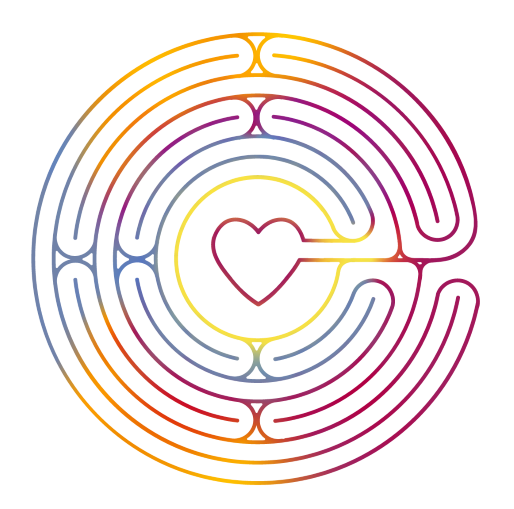When Will We Listen and Learn?
I wrote the first draft of this post before the heinous attempted coup at the U.S. Capitol on Wednesday, January 6, 2021. That said, I believe what I write here – but to be very clear, what I say midway through cannot be forgotten: When your opinion begins to impinge upon the lived experience and safety of another person, it is no longer an opinion or a cause to fight FOR. It is an intrusion, and it is oppressive. We cannot listen to or try to understand evil.
That said, I’d like to share these thoughts I penned between January 2-4, 2021.
********
I’ve recently found myself repeating the phrase, “If 2020 has taught us anything…” with family, friends, nonprofit leaders, and even strangers. I’ve said it about health, race relations, education, politics, and nonprofit fundraising.
But I’m not really sure 2020 has TAUGHT us anything—because to learn, we must listen.
Somehow, instead of learning and trying to find solutions from the experiences of the year, we’re more interested in getting our way and convincing people we’re right and they’re wrong.
We’re more interested in pointing fingers at an opposing political party or religious or philosophical point-of-view than in digging into the practical, real life impact the policies and practices have on individuals.
We somehow think that our perspective, our world view, our experiences are the only valid ones.
I’d say, let everyone and anyone fight FOR something, in support of someone if they want.
Let anyone who feels compelled to work for a cause, do so. For Black lives, science, the environment, immigrants, women’s right to bodily autonomy, LGBTQIA+ equality, the protection of children, cancer cures, or animal rights. The list goes on.
But let’s be clear. Don’t get me wrong. When your opinion begins to impinge upon the lived experience and safety of another person, it is no longer an opinion or a cause to fight FOR – it is an intrusion, and it is oppressive.
When one person's opinions, decisions, or actions endanger the life of another, we cannot be tolerant. We cannot be tolerant of drunk driving. We cannot be tolerant of pedophilia. We cannot be tolerant of mass murder. We cannot be tolerant of racism, bigotry, or hatred. At some point, tolerance becomes acceptance or allowance.
If someone doesn’t agree that drunk driving, pedophilia, mass murder, racism, bigotry, or hatred are intolerable, or if they don’t want liberty and justice for ALL, they don’t want to be part of the solution. Engaging them in conversation is meaningless – and even dangerous.
We must call them out and sometimes separate from them. Otherwise, we continue to empower that which cannot be tolerated. If we excuse or ignore the words and actions that are not tolerable, we perpetuate the hatred and wrongdoing.
Once we agree on the most fundamental goal of justice and equality, can we begin to listen to someone with a different experience and an opposing solution? Can we speak from our perspective instead of pointing fingers or attacking someone else? Can we find a solution that improves everyone’s situation?
We’re not talking about choices between Coke or Pepsi, Rock or Soul, city or suburb, Romcom or Action flick, winter or summer.
Marching or working for a cause that spews hate or attacks another person’s right to life, liberty, and the pursuit of happiness cannot be tolerated. I cannot be expected to tolerate your decision to dehumanize or disrespect me or anyone else.
We may not agree on HOW to address these issues, but if we can agree that these ideologies and actions cannot be tolerated – then we can begin to learn and find solutions.
Should we deny anyone the right to share their experiences, their fears, their hopes? No.
We must listen when they explain how a policy or ideology personally impacts them or those they care about, so we can better understand what they need and try to work on a solution together.
We need informed, rational, compassionate discourse. We need to speak and to listen. We need to try to hear and understand – not to condone or normalize or tolerate what is wrong or evil, nor to figure out how to “just get along” or to let injustice or hatred remain. We must seek justice, equity, and equality for ALL.
We must speak our truth – without denigrating those who disagree. For when we denigrate, deride, or disrespect others – we cease to speak truth. Let each be heard when they are speaking their truth. Only then can we hope for a possible solution to the issues at hand. And WE NEED SOLUTIONS. We need solutions to complex issues.
Alas, I may be naïve, but I do believe:
We don’t need more memes; we don’t need more labels; we don’t need more name calling. We need to see every individual as just that – unique and complex and individual, or we will never hear one another, and we will never heal.
What would the world look like if we really shared our fears and hopes instead of attacking others; if we listened to one another, attempted to understand, and did our best to make every person’s world more loving, accepting, and empowering? What would it look like if we really kept trying to create a world with liberty and justice for ALL?


